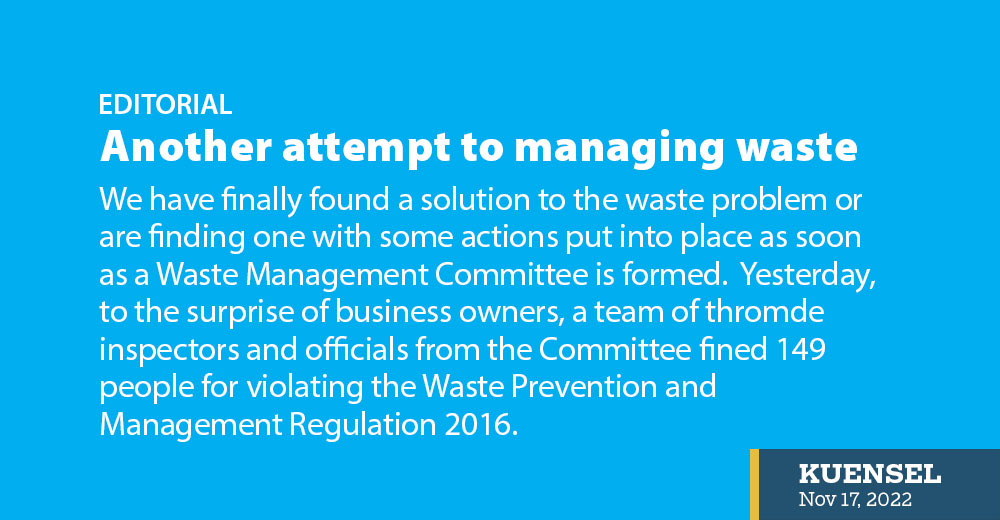We have finally found a solution to the waste problem or are finding one with some actions put into place as soon as a Waste Management Committee is formed. Yesterday, to the surprise of business owners, a team of thromde inspectors and officials from the Committee fined 149 people for violating the Waste Prevention and Management Regulation 2016.
The violators were taken aback even if they were aware that there is a regulation that is six years old. The difference is that not much has been implemented. The warning seems stern now.
The Waste Management Committee is created to see how the waste situation in the country could be improved. It can be. It is formed with an executive order from the Prime Minister, headed by officials from His Majesty’s Secretariat, the office of the Gyalpoi Zimpon – well aware of His Majesty’s concern on the mounting waste problem and many relevant institutions.
More than who is on the committee, it is the decision to take tougher approaches against who litter or violate regulations. The carrot approach has failed. The advocacies, awareness and cleaning campaigns have not helped. Some are even convinced that there are volunteers to clean their waste from time to time. Quite often it is school children and recently the de-suups cleaning up the mess others created.
The committee will also review and recommend changes in policies, regulations and institutional structure to improve waste management practices besides exploring the most suitable and environmentally sound technological solutions to manage waste effectively and efficiently. This is a welcomed change.
Our waste issue is getting complicated. It is not only plastics or pet bottles now. There are bigger issues like e-waste and untreated harmful waste flowing freely into the rivers or landing at the landfills. Then there are spillage of construction material or water on public infrastructure like roads damaging them and costing the government coffer.
In the meantime, the thromdes, dzongkhag licensing and monitoring authorities will also have to create adequate space and infrastructure for managing waste while tightening rules and improving monitoring mechanisms.
In the thromdes, property owners could take up ownership by adopting surrounding areas and keeping them clean. Schools adopting streams and free space is a good example of taking ownership.
The initiative should not stop after the launch and initial fervour. A good reference is the repeated ban on the use of plastic bags. We have admitted defeat and failed to prevent a good decision from going to waste.


